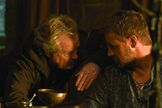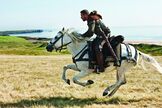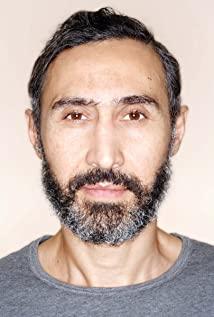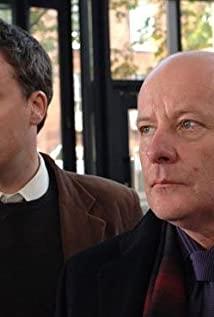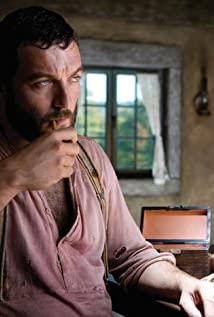The story of "Robin Hood" is based on the legend of the robbers that circulated in the British folk during the Crusades. In previous works of art, this almost deified figure often appeared in a perfect posture shrouded in a heroic halo. When Scott revised the script, he tried to break this blunt and uninteresting character setting, and tried to create a flesh-and-blood, true-feeling civilian hero image. Therefore, in most of the scenes of "Robin Hood", Robin ×××× (forgot his name), the prequel character of Robin Hood, is subverted into a kind of gangster. He formed a group to escape the battlefield of the Lionheart King, put on the disguise of a knight as an archer, and escorted the crown to the fief. But this simple wish was disillusioned in John's past playful words. The wandering journey unfolds in front of the rogue protagonist, and the turning-point plot of returning the sword is unsheathed, and the hero's noble relationship is achieved. If there are still several factors that distinguish the protagonist from the mortals, it is: one, he is the leader of the gangster he created; two, he picked up the handsome Lionheart. To the BMW mount that vomited blood; thirdly, the remarkable effect brought by weight loss and fitness made Russell Crowe much more VIP than his organization members.
Although the setting is intentionally close to the commoner hero, a large number of detailed expansions cover the main story into a bird's eye view of England's woods, intermittent and narrow, and even the hero development history supported by it seems weak and not. Persuasive. Robin's moral awakening by reminiscing about the past is arranged backward and far-fetched; the subsequent clamor, support, obedience, and finally the soul-stirring kneeling surrender in the final seaside battle, so there is something that makes people feel. Scorned weakness. Scott's embarrassment hangs there nakedly: Robin Hood is destined to be deified, even if this extravagant stroke is squeezed to the end; and the director's literary art and gentleness make Qi spend a huge amount of ink describing his non-heroic life. fact. The connection between inheritance and inevitability is out of touch. What disappoints me the most about this film is not the procrastination of the details, but Robin Hood as a positive hero, which makes people not feel much cuteness. Talk about him being a fool, but he always looks serious and seems to be carrying the nation's righteousness and people's livelihood; talk about him being brave, there are only a handful of occasions where he straddles the horse with real swords and arrows, and he shows off his talents and looks handsome on weekdays. There is no interest either; let’s say he is smart, his smart decisions are almost all structural needs, and there is no technical content at all, and even the speeches at the meeting are citing his father’s writings. Several quality elements that can be summed up are: integrity, carefulness, and no interest. So when the big villain played by Mark Strong overshadowed the main charm with his downright sinister, vicious, and cool guy's aura, I was still a little gloating in my heart.
Scott's film music is always full of ink, but never overwhelms the guest. Hongmei's ethereal bottom sound travels in a limited tension space, supporting the abundance of the three-dimensional picture. This is rare. The coolness of Cate Blanchett's robe is really delicious, but the lines of Australia's face have a British style. Overall, the final film and picture effects of "Robin Hood" are excellent, suitable for viewing with low expectations and quasi-artistic hearts, without aftertaste.
View more about Robin Hood reviews




